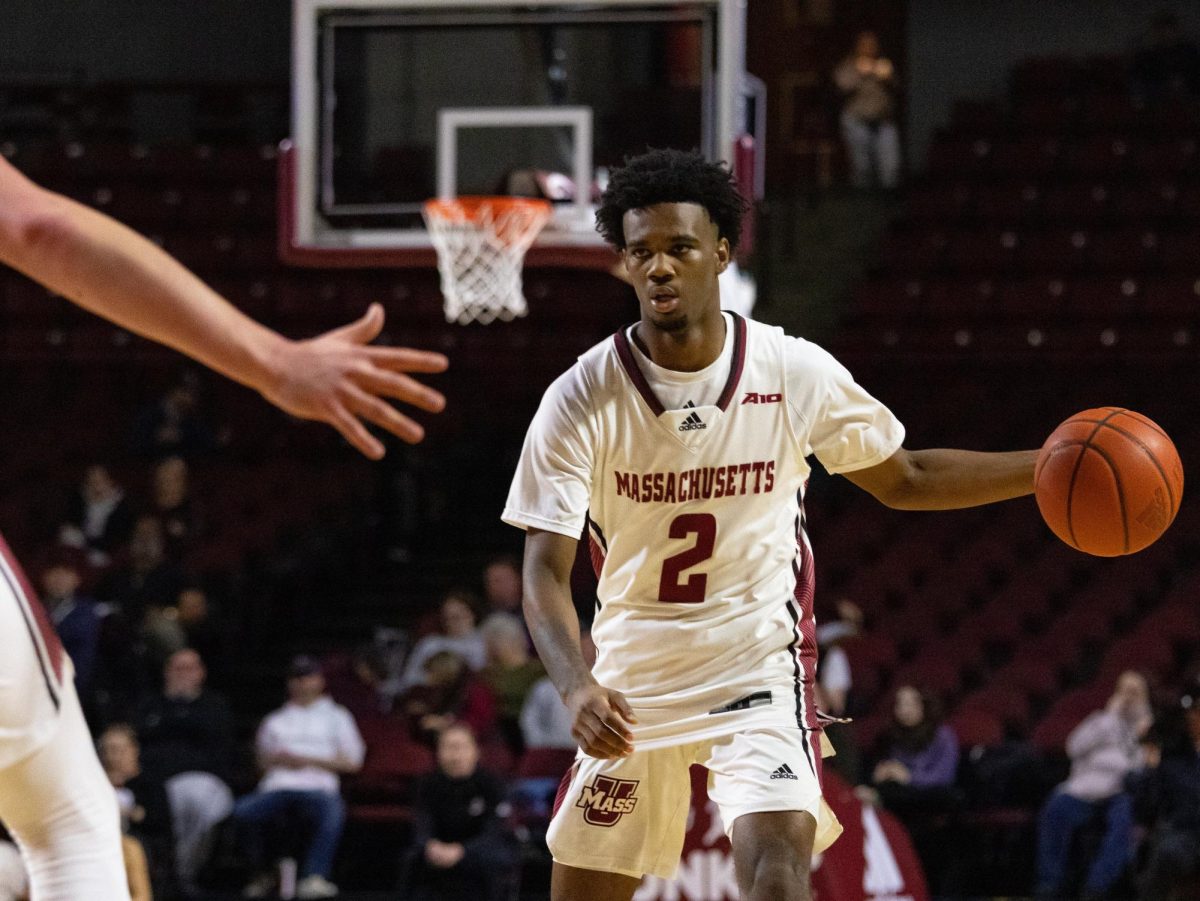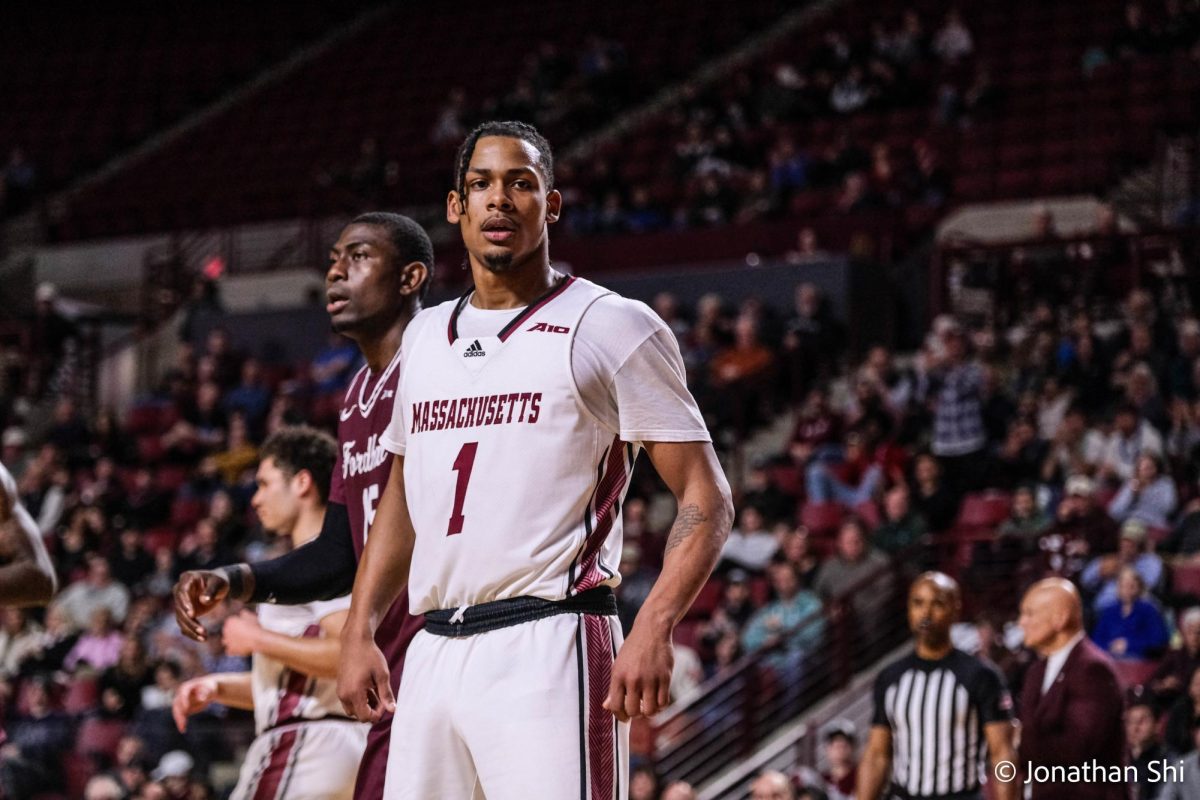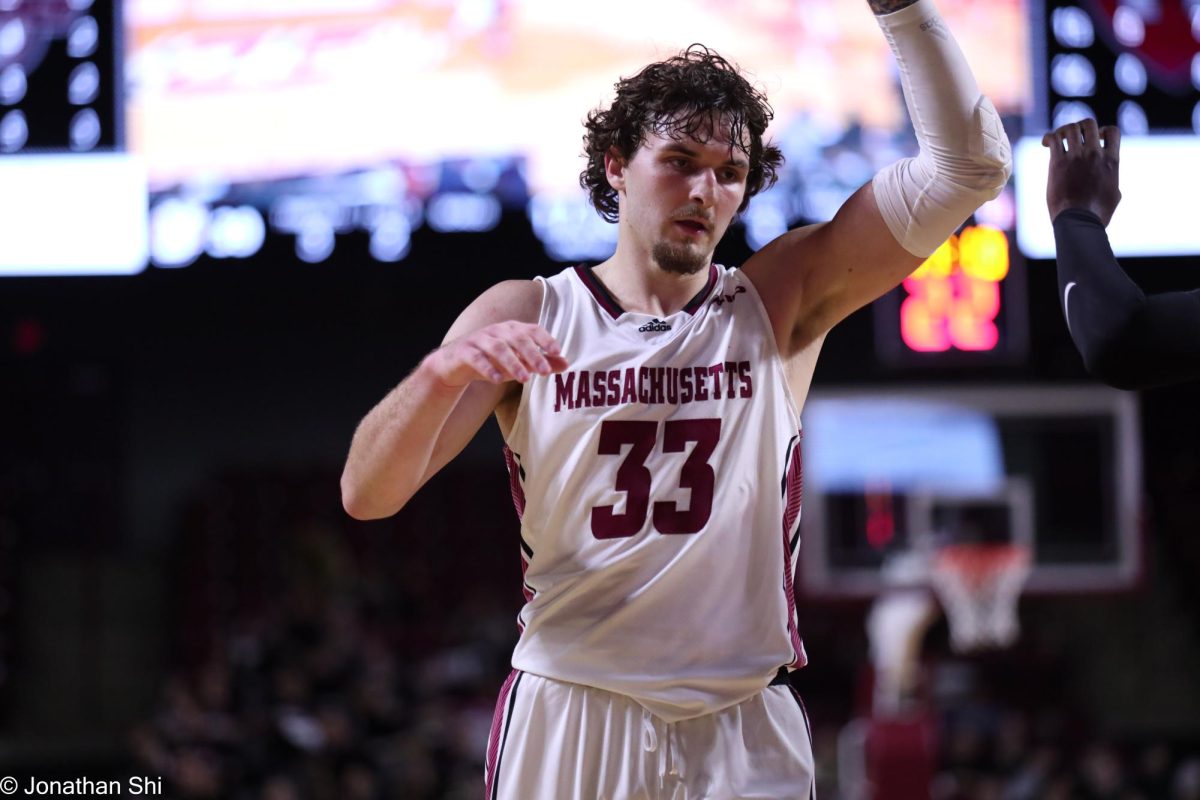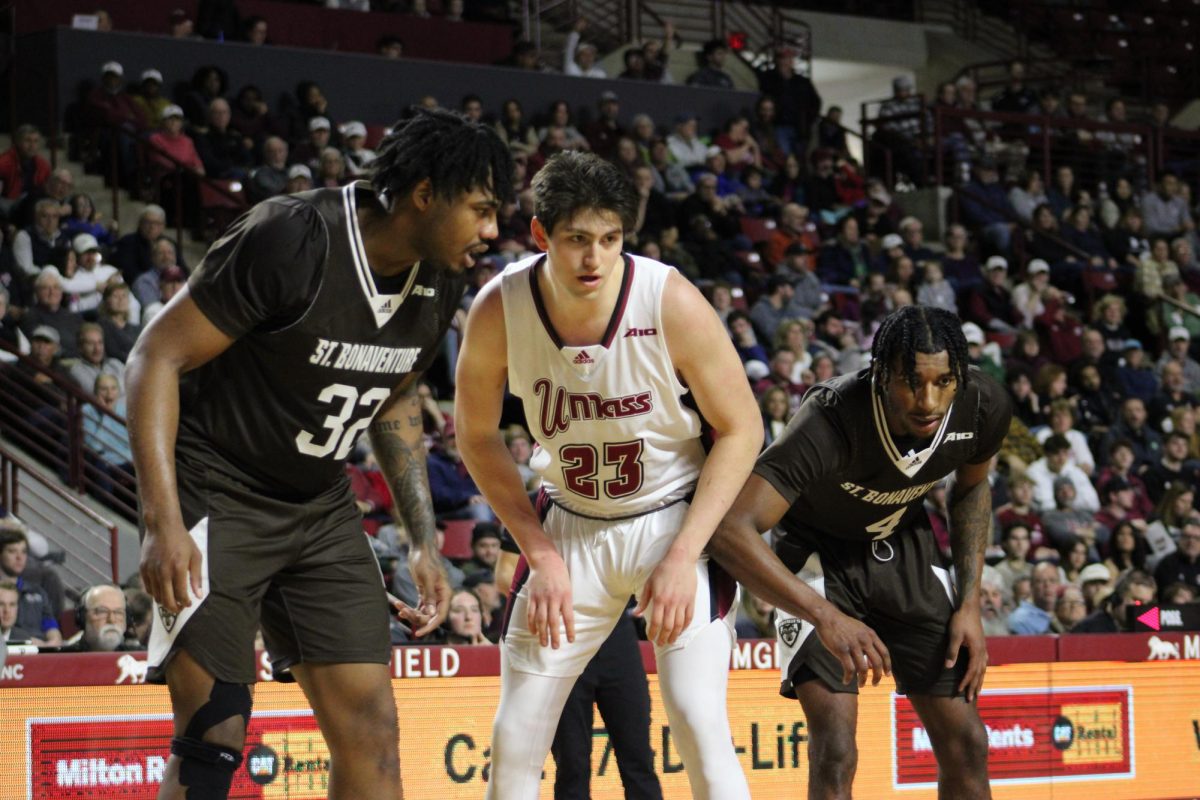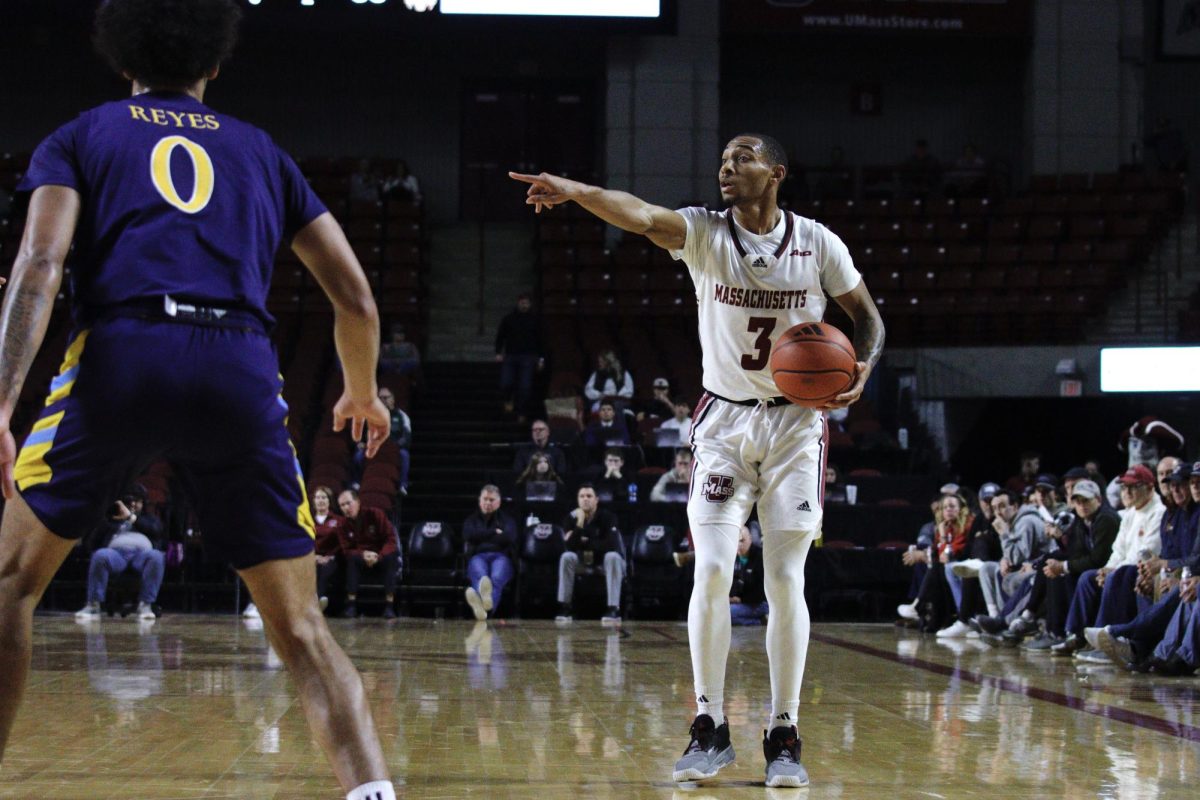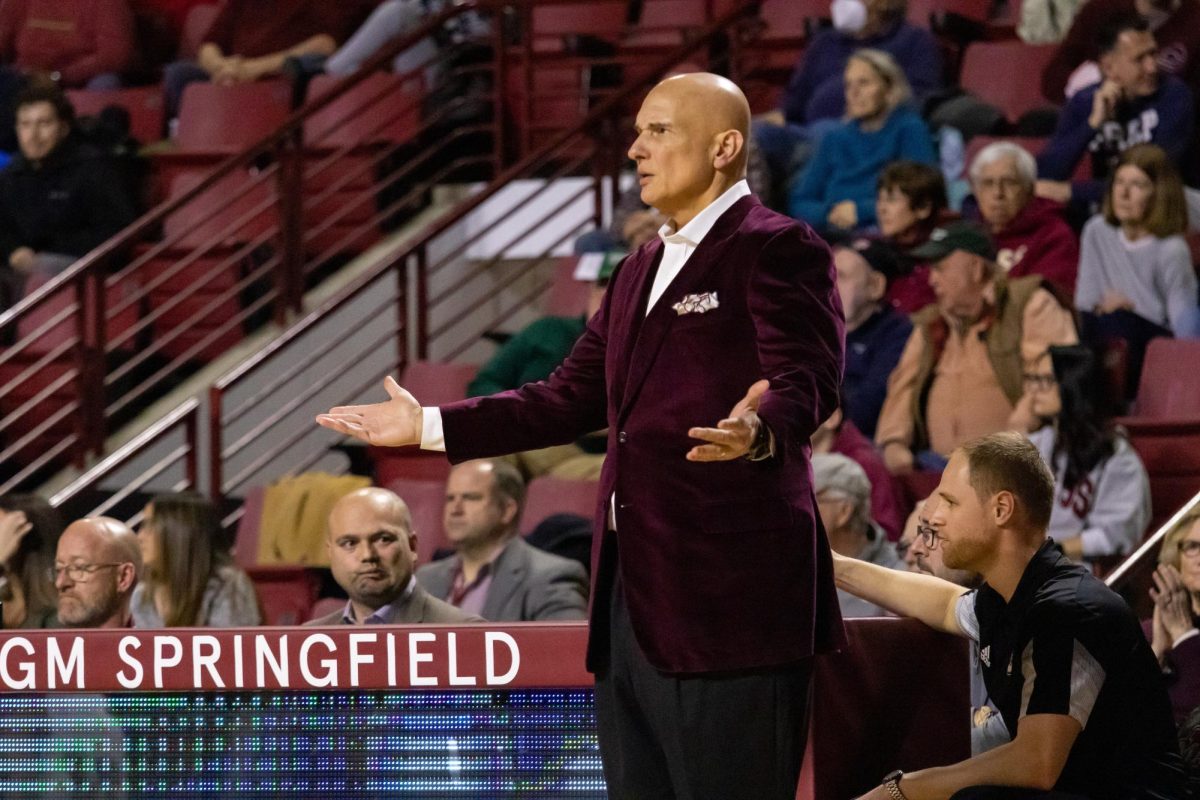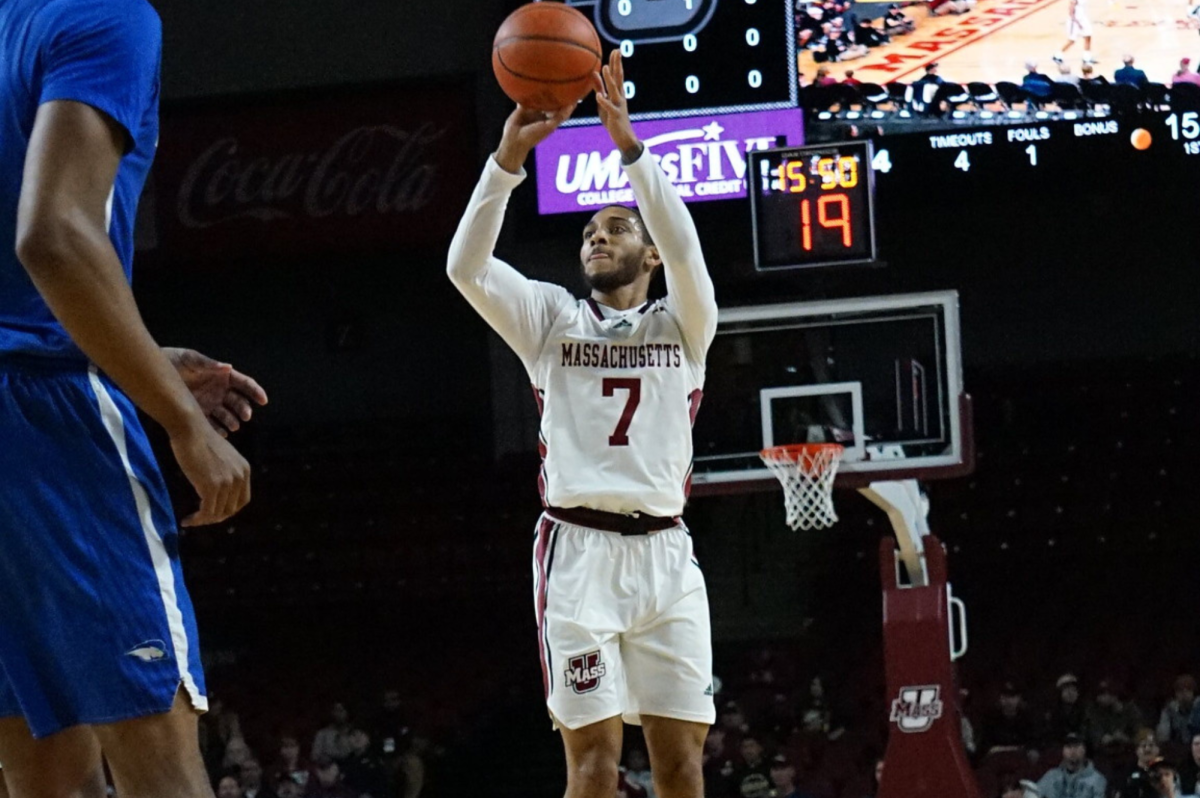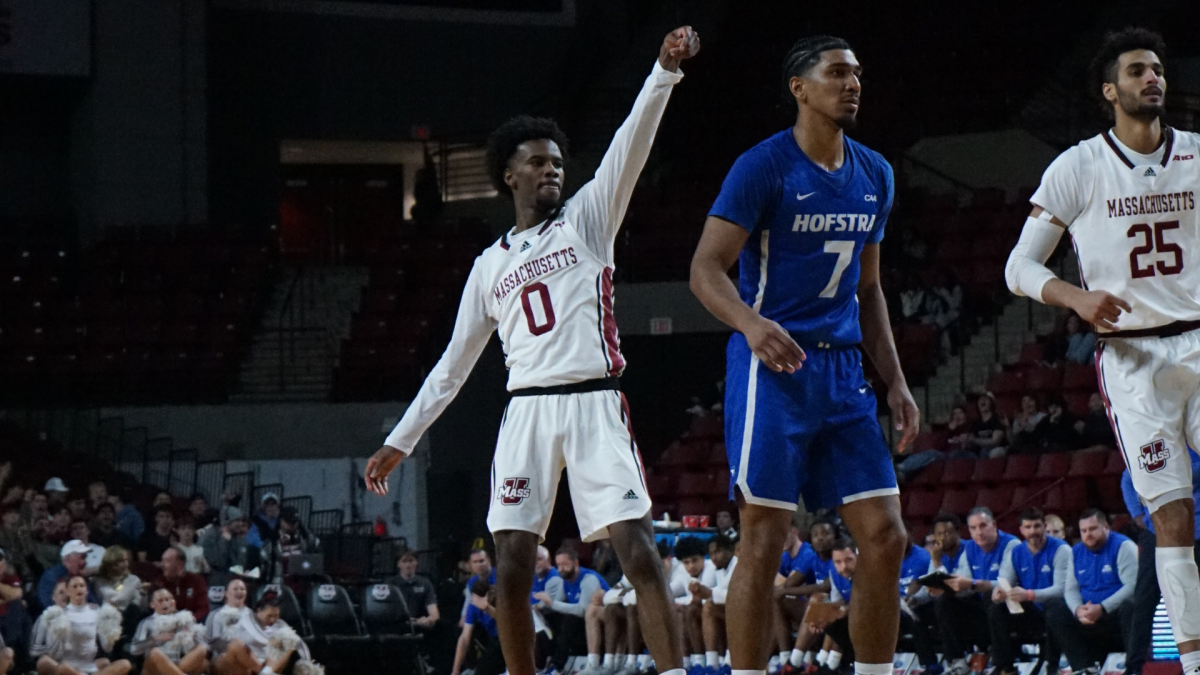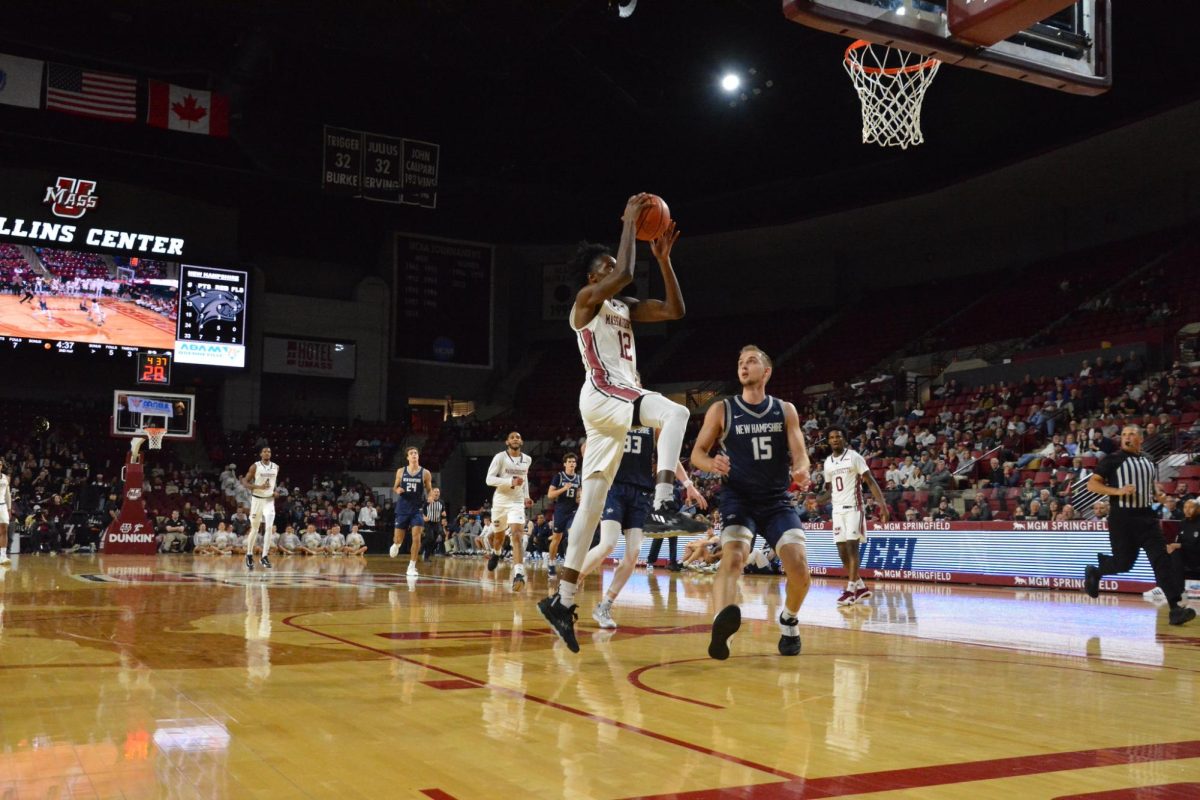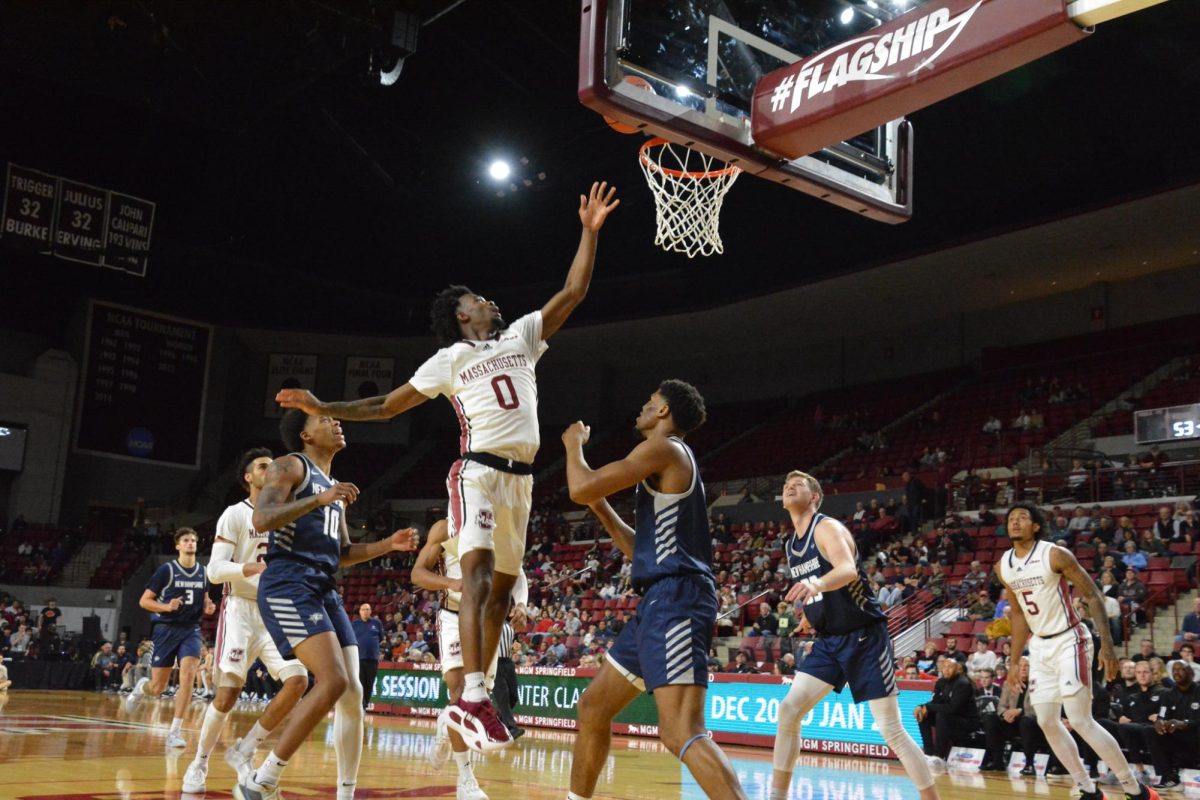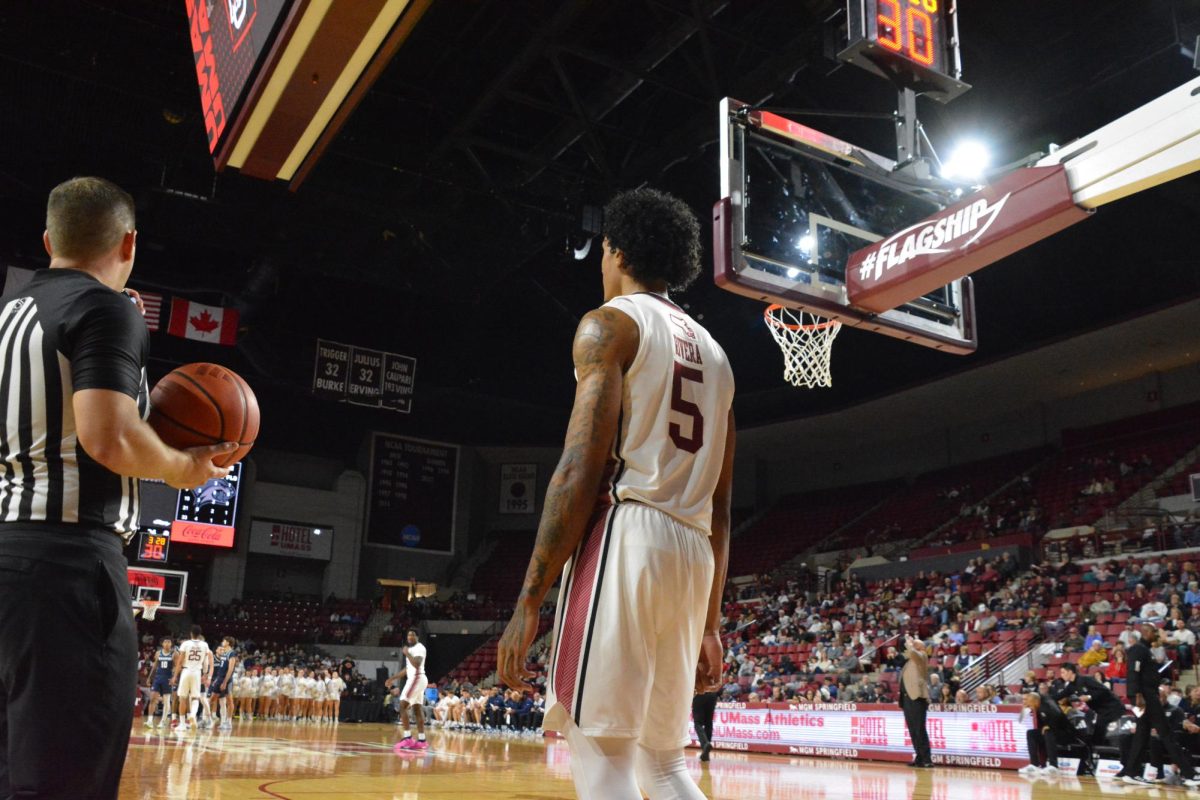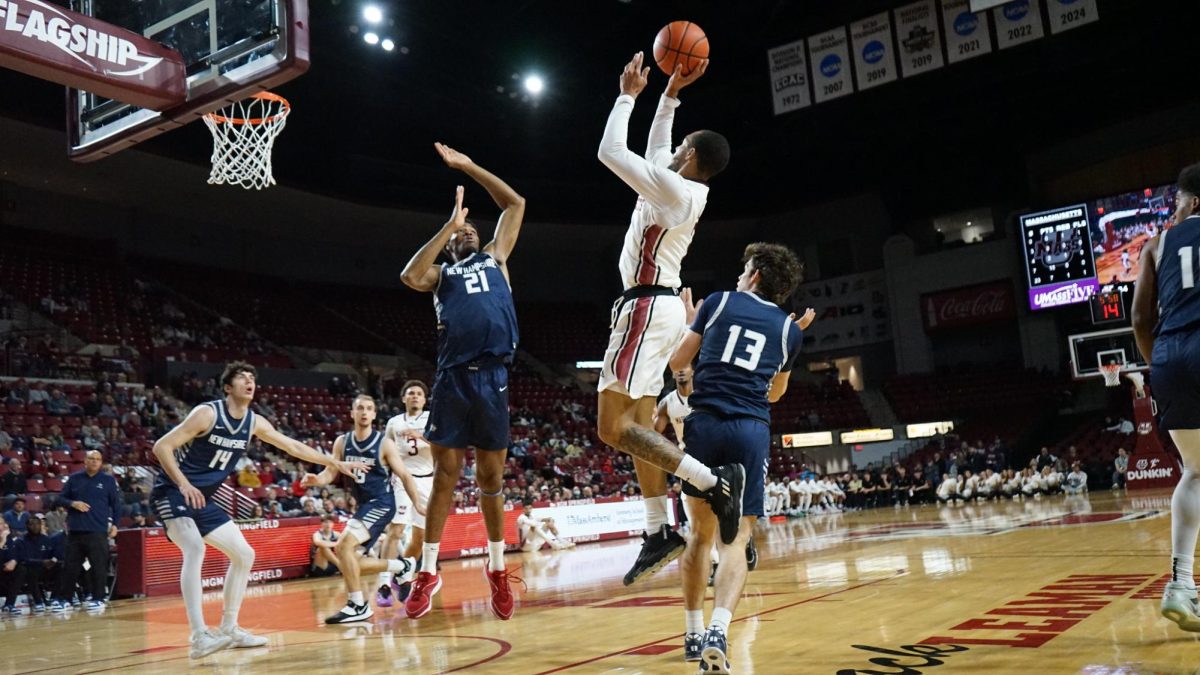
Shortly after Massachusetts men’s basketball player Derrick Gordon publicly shared he’s gay, teammate, former roommate and close friend Tyler Bergantino received a text message from a friend from high school.
The friend – who played high school basketball with Bergantino – reacted in immediate support of Gordon, who became the first male Division I college basketball player to openly announce he’s gay.
“Actually, I got a text from one of my high school teammates saying ‘woah, he’s gay? That kind of makes me want to pull for him even more now,’” Bergantino said.
Gordon’s announcement was met with a significant wave of support via social media outlets such as Twitter and Facebook. The announcement, which initially broke on ESPN.com and Outsports.com, was a courageous move in a college sport yet to have a player openly come out.
Bergantino noted that Gordon had entered “uncharted waters.” But according to Bergantino, if someone was prepared to for this, it was Gordon.
“He’s a confident guy, a very confident guy,” Bergantino said. “I don’t think this will phase him at all … I think he’s confident enough and he’s comfortable with himself enough to know that there’s nothing wrong with being himself. I think he’s the one guy that can pull this off flawlessly.”
There was a time for Gordon where that confidence wasn’t on full display. For almost four years, Gordon kept his sexuality a complete secret. At UMass, he strayed from his teammates and spent a lot of time alone. There were nights he cried himself to sleep and as he continued to struggle, he continued to isolate.
But Gordon returned to his room after the Minutemen returned from the NCAA Tournament and pondered his future. He didn’t want to go through another summer or another year with this much on his mind.
“I did some thinking,” he said. “I’m about to go through another summer. At that point last summer, that’s when my teammates kind of found out. I didn’t want to have to go through that hiding and sneaking around all of that.”
For Gordon, there was a sense that the time was now.
“I tried to deny (my sexuality) a lot just because of my family background and where I grew up,” he said. “I just thought, ‘there’s no way I could be gay, there’s no possible way.’ As time went on, you just have to come to grips with it. That’s just who you are.”
Despite being the first male Division I college basketball player to come out, Gordon isn’t the first notable athlete to come out as gay. Professional basketball player Jason Collins came out as gay over a year ago. Current WNBA star Brittney Griner also publicly announced she’s a lesbian. Just a few months ago, former Missouri defensive end and National Football League hopeful Michael Sam also announced he was gay in anticipation of the NFL Draft.
Gordon spoke to both Collins and Sam recently and both conveyed that there’s a shared sense of responsibility to be a role model moving forward.
“Both of them said,’ listen, it comes with a lot of responsibility. Just like us, you’re about to be a big gay icon for a lot of people,’” Gordon said. “It’s a lot of responsibility which I’m able to deal with.”
The opportunity to offer inspiration to children or other athletes in similar situations resonates with Gordon. There was a time before the 2013-14 season when Gordon contemplated quitting basketball altogether. He’s aware of the torment of keeping his emotions within and hopes he can help others in the future.
“I do feel sorry for the kids that are going through this,” Gordon said. “They’re killing themselves and not playing sports because they feel they can’t be accepted. I was going to stop playing sports, I wasn’t even going to play this season. That just goes to show that this is a big deal and nobody should ever feel that way.”
Wade Davis understands the responsibility Gordon’s taken on. Davis is a former NFL player and the executive director of “You Can Play,” a project “dedicated to ensuring equality, respect and safety for all athletes, without regard to sexual orientation.” Davis spoke to the Collegian on Wednesday while speaking at “Coming out to Play,” a panelist presentation put on by the Association of Diversity in Sport at UMass.
“Derrick was like, ‘look, I’m exhausted of not being who I am so I’m going to invite the rest of the world in so I can go out there and live my life,’” Davis said.
Davis, who is also gay, was with Gordon when he shared his sexual orientation with his teammates and was a part of a group of individuals which Gordon referred to as his “support staff” throughout the process. Gordon noted that without Davis and his support staff, he couldn’t do what he was doing.
Now, the goal is to spread Gordon’s story.
“Because he’s young, there’s a different relatability there,” Davis said. “I have to listen to people like Derrick Gordon or go to high schools to really find out what’s happening. I’m 36, my experience is a little different from the experience of Derrick. His story is much more relevant and relatable.”
For Gordon, the opportunity to make an impact stretches far beyond points and steals, wins and losses. He’s made his story public and now he wants to make an impact.
“I’m ready to change lives and save lives,” he said.
Mark Chiarelli can be reached at [email protected] and followed on Twitter @Mark_Chiarelli.

